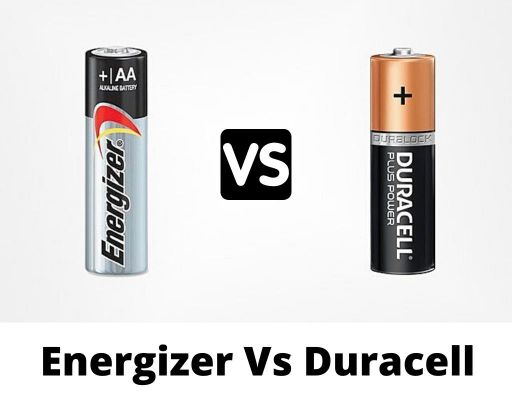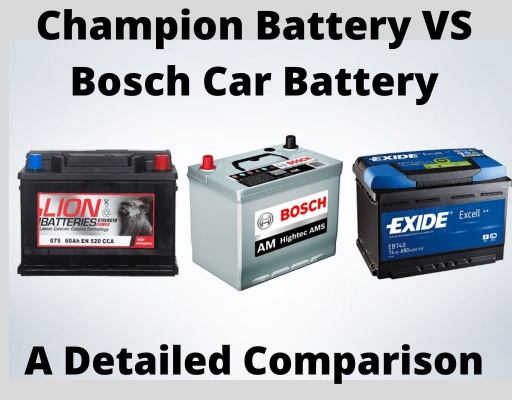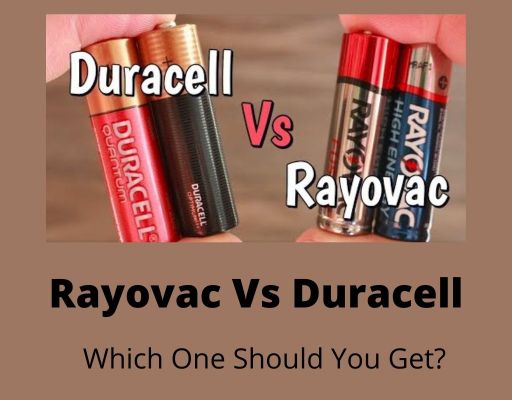Generic batteries vs name brand batteries; the debate has been going on for a very long time. Lots of testing data along with opposing comments on the matter creates the question, which should you get?
When budget is not a problem and you want reliable performance, getting batteries from a reputed brand is a must. But generic battery brands can also be your choice for less important devices.
In this article, I have given an overview of the performance, durability, reliability, and cost of both types. It will help you choose the right option for certain applications.
Generic Batteries Vs Name Brand: Quick Comparison Table
Before getting started with the explanations below, let’s have a quick look at the comparison table below for an overview.
Generic Batteries Vs Name Brand
| Features | Generic Batteries | Name Brand |
| Runtime | Poor | Better |
| Performance in Sensitive Electronics | Poor | Better |
| Manufacturer | Unknown | Well-reputed US Company |
| Shelf Life | Way less than name brands | Longer |
| Self-discharge Rate | High | Low |
| Safety | Poor | Better |
| Resell Value | Not good | Good |
| Warranty | Very short time to none | Longer |
| Cost | Affordable for all | Reasonable to expensive |
About the Brand: Generic Batteries Vs Name Brand
Talking about name brands, these are well-reputed battery manufacturers and sellers.
Rayovac, Energizer, Duracell, Eneloop, EBL, and Amazonbasics are some of the leaders in the industry.
For car batteries, there are other brands such as Optima, Odyssey, ACDelco, Duracell, etc.
On the other hand, generic brands are the ones you can find in dollar stores.
These are the cheapest batteries of all. The obvious fact is that cheap generic batteries are not as durable as name brands.
The main discussion part below focuses on the data comparison to show you whether name-brand batteries are worth the extra cost or not.
What’s the Difference Between Generic and Name Brand Batteries Based on Features?
From the table above, you have got a rough idea about both types. Further explanation of particular parameters will help you understand better.
Runtime
One big difference you may see between the generic and name-brand batteries is in their runtime.
Here, the device you are using is a factor too.
If you are selecting a battery type for flashlights, using a cheaper generic battery won’t matter.
Compared to expensive ones, you only have to replace the batteries more often.
But some devices can’t operate in low voltage such as the Wii remote.

I’m borrowing the image from Wired.com to give you a clear understanding of the matter.
For sensitive electronic devices, a dollar store battery provides way less runtime than name brands.
Manufacturer
You see lots of well-known brands and not-so-popular cheap brands for batteries.
Do you know that all of them are not manufacturers?
Only a few companies have the capability to produce batteries. Among them, some produce good-quality batteries, and some make cheap ones.
Now, the name brands order batteries from well-known manufacturers such as Clarion, Enersys, Energizer Holdings, Inc., Panasonic Corp, and Duracell.
Lots of brands buy batteries from these companies in bulk, use their brand packaging, spend a lot on marketing, and sell them in different stores.
The same process goes for generic batteries but they buy from other manufacturers outside of the US. Here, quality doesn’t matter to them.
As long as the batteries are cheap, these generic brands are interested in reselling them.
Reliability and Durability
Regarding shelf life, leakage issue, and self-discharge rate, it is obvious that name-brand batteries are better.
The shelf life of expensive batteries is better because they can hold the charge for a long time.
Here, the self-discharge rate comes into the discussion automatically. Generic batteries have a high self-discharge rate.
After taking it out of storage, you may notice that cheap batteries don’t have enough voltage to power the device.
But good AA or AAA alkaline batteries can be left in storage for 10 years without fear of losing the voltage lot.
Safety
You have probably thinking why I haven’t briefly talked about the leakage issue in the previous section.
It relates to the safety parameter of these batteries. To make them cheap, manufacturers don’t use strong shells.
As a result, the batteries may leak before the expiry date under harsh conditions.
On the other hand, expensive batteries come with a leak-proof guarantee for a certain time.
For example, Energizer promises that its batteries don’t leak. If they leak and damage your device, the company will replace the device.
For Automotive Batteries
The same debate applies in the automotive industry. Here, cheap vs expensive car battery is a big talking point.
I’m not repeating quality or durability parts as you have already got an idea from previous discussions.
Here, I’ll focus on maintenance, regulations, CCA rating, and warranty.
First of all, cheap car batteries need more maintenance than expensive ones. If you don’t keep it in check from time to time, you will experience sudden failure.
Secondly, expensive car batteries are made according to safety regulations along with standard practices.
As a result, you won’t have to worry about the safety of your vehicle, and will never experience battery-related accidents.
Thirdly, cheap batteries don’t have enough CCA rating to start the car in cold weather.
Even if the spec sheet says it has, you will have to assume that the actual CCA rating is much less.
Lastly, expensive car batteries come with a long warranty period which is not the case for cheap or generic ones.
Considering all of the factors, it affects the resell value of auto batteries. Buying one from a reputed brand can return a good value on used units.
Cost
According to the test data, and expert opinions, buying cheaper generic batteries makes one pay more frequently than name-brand batteries.
What I mean is that paying 3 dollars for a name-brand battery may last about 3 years whereas the cheap $1 battery may last for only a year.
You can see the energy graph from Wired, and it proves what I have stated in the last sentence.
So, in different cases, you may be paying almost the same or slightly more for cheap generic batteries compared to expensive ones.
In short term, generic batteries are way more cost-effective than name brands.
But in the long term, batteries from reputed brands will always have the upper hand.
Generic Batteries or Name Brand: Which One to Choose?
From the discussions above, I hope that you have got a clear picture. Choosing one really depends on the requirements of an individual.
Let’s assume that you are searching for batteries to power your kids’ toys. Here, durable and expensive batteries are not suitable.
Because the toy may not last as long as the battery. And, your kid may damage the battery while playing.
But using cheap batteries in your wireless keyboard and mouse will give you a frustrating experience.
Changing the batteries too frequently and interrupting power delivery in the middle of something important is not acceptable.
Here, name-brand batteries would be better even if you have to pay a little more than your budget.
According to Business Insider, you should not spend money on name-brand batteries unless you have to.
Frequently Asked Questions(FAQs):
Does Battery Brand Really Matter?
Most of the time, yes
Is There A Difference Between Cheap Batteries and Expensive Batteries?
Yes; durability, shelf life, self-discharge rate, and capacity are better.
Are Generic Batteries OK?
Depending on the application, yes, generic batteries are okay to use.
Do Generic Batteries Last Longer Than Name?
No
Are Dollar Store Batteries Worth It?
Yes, but don’t rely on them for sensitive applications
Conclusion
The real question you should be asking in generic batteries vs name brands is whether the expensive batteries are worth the extra cost.
Here, the answer depends on the use case. For example, your kid’s remote controller doesn’t need very reliable long-lasting expensive batteries.
On the other hand, you can’t compromise the quality of a battery when it is used on a wireless keyboard, or something important.
To summarize, the difference is not that big when you are calculating the cost of energy for 4 or 5 years.


